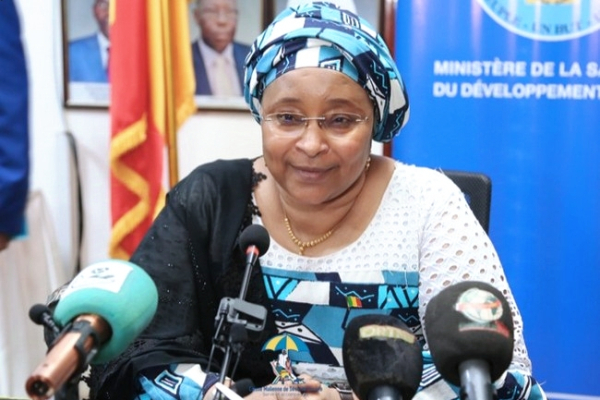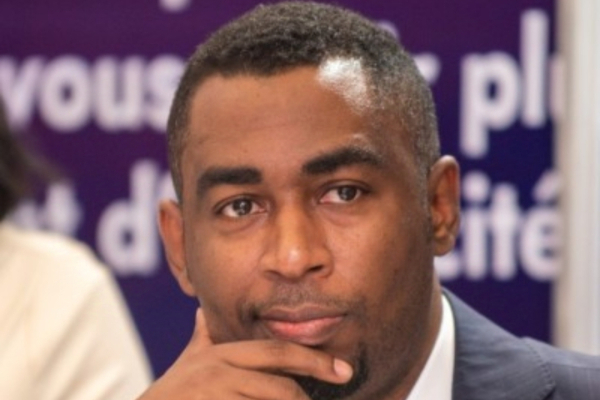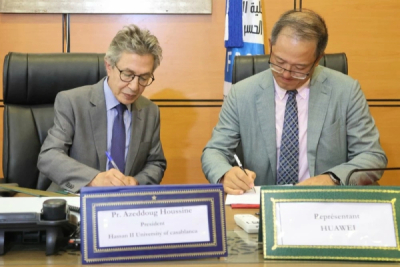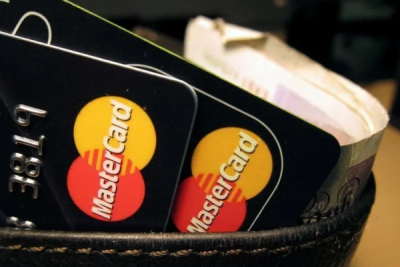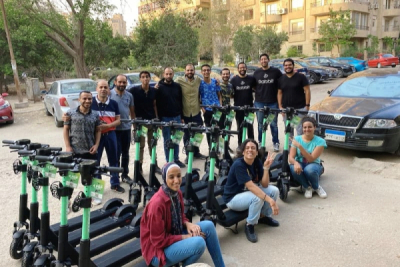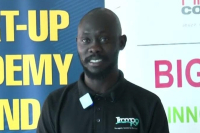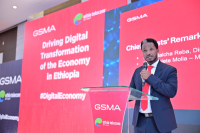Mali is undergoing a digital transformation, prioritizing the digitization of a strategic sector to simplify daily life for its citizens.
The Malian government has unveiled a National Strategic Digital Health Plan (PSNSN) for the period 2024-2028, according to local media reports. This initiative, backed by a projected budget of $35 million, aims to significantly improve access to quality specialized healthcare by 2028. Key components of the PSNSN include modernizing health infrastructure, implementing telemedicine solutions, and creating a national health database.
The initiative is supported by several key partners, including UNICEF, the World Bank, the United Nations Development Programme (UNDP), the U.S. Agency for International Development (USAID), and the World Health Organization (WHO). “This plan is an essential tool to modernize our healthcare system and meet the needs of the Malian people,” stated Assa Badiallo Touré, Minister of Health and Social Development.
Launched shortly after the government’s 2024-2028 roadmap, the PSNSN aligns with the broader goal of universal access to primary and specialized healthcare. It is a cornerstone of Mali’s digital transformation strategy, supported by the World Bank.
A major challenge for the project will be ensuring seamless interoperability between different health information systems. To address this, the plan prioritizes centralizing information to securely provide healthcare professionals with access to patient medical records.
Adoni Conrad Quenum
A leading entrepreneur in the Democratic Republic of Congo, he specializes in e-commerce, fintech, and logistics, driving innovation within the country's tech ecosystem.
Bonny Maya (photo), a DRC-born serial entrepreneur, is the founder of TINDA, a tech company specializing in last-mile delivery. Established in 2017, TINDA provides delivery services for e-commerce businesses, easing logistics for online and offline retailers alike. “Issues related to poorly referenced addresses, route misunderstandings, client availability hours, traffic jams, and other hassles will no longer stand in the way of your business,” the company promises.
TINDA’s services can be accessed via phone, SMS, WhatsApp, email, or its online platform. Upon delivering packages or mail, TINDA collects payment from customers on behalf of sellers, then transfers the funds to them using fintech solutions available in the DRC.
Bonny Maya also serves as president of FENX, a Congolese IT engineering firm supporting organizations and businesses in their digital transformation journeys. Prior to founding TINDA, he launched eMart.cd in 2016, a marketplace for local goods, where he served as CEO until 2021. The platform enables users to shop online with ease.
In addition, Maya coordinates the Central Africa E-Commerce and Fintech Expo, an annual gathering for sector stakeholders. The sixth edition of the event is scheduled for April 17-19, 2025.
Maya holds an engineering degree in radio transmission, electrical, and electronic engineering from the Higher Institute of Applied Techniques in Kinshasa, obtained in 2008. His career began in 2011 at the International Bank for Africa in Congo (BIAC) as an IT assistant specializing in electronic banking. From 2012 to 2016, he managed extranet services at the Congolese Control Office (OCC), before becoming president of the Silikon Bantu tech hub from 2017 to 2018.
Melchior Koba
The Google Developer Group Lagos (GDG Lagos) has announced DevFest Lagos 2024, scheduled for November 15-16. As one of Africa’s major developer gatherings.
The two-day event, part of a global DevFest series, will feature expert talks, workshops, and networking opportunities, covering topics like AI, machine learning, and cloud computing. Interactive sessions and discussions on diversity, inclusion, and career growth will round out the program.
Morocco is actively investing in its digital transformation, with a strong focus on developing human resources. This strategic approach includes updating educational programs to incorporate digital skills.
Huawei Morocco, a subsidiary of the Chinese tech firm Huawei, and Hassan II University of Casablanca (UH2C) recently signed a partnership to launch "Code 212," a digital skills center. Already established in other Moroccan universities, this center aims to provide students with targeted training in key fields such as artificial intelligence, cloud computing, big data, and the Internet of Things (IoT).
"This project embodies our commitment to education and innovation, and we are confident it will play a crucial role in training future tech leaders. Through this meaningful collaboration, Huawei Morocco seeks to promote high-quality, forward-looking training to shape the experts who will drive Morocco's digital transformation," stated Jason Chen, Vice President of Huawei Morocco.
The initiative aligns with the Esri 2030 Pact, Morocco's national plan to accelerate the transformation of higher education, scientific research, and innovation by 2030. Its objective is to equip students with personal, transversal, and digital skills tailored to labor market demands, in line with royal directives to keep pace with global digital growth.
The rollout of "Code 212" is particularly significant given the current push for digitalization as a core driver of economic growth, while training remains a major challenge. A study by Boston Consulting Group (BCG) highlights the need for Africa to train 650 million people in digital skills by 2030 to fully leverage technological advancements. In Morocco, the government has set an annual target to train 100,000 young people in digital professions, aiming to create 240,000 jobs in the sector by 2030.
Samira Njoya
While digitalization is on the rise in Africa, mobile money remains underutilized as a payment method across many service platforms. The collaboration between telecom operators and banking solutions leaders is a promising step forward.
Mastercard and Orange Middle East and Africa (OMEA) announced a strategic partnership on Tuesday, October 29, that will enable millions of Orange Money wallet holders to instantly obtain a virtual or physical debit card linked directly to their Orange Money account starting in 2025. These cards will allow Orange Money users to make seamless payments locally and internationally with any merchant, website, or mobile app that accepts Mastercard.
The new service will initially roll out in Cameroon, the Central African Republic, Guinea-Bissau, Liberia, Mali, Senegal, and Sierra Leone. According to Aminata Kane, CEO of Orange Money for the Middle East and Africa, “by giving [...] users the ability to make easy payments with the Mastercard virtual card, we open the door to a world of new possibilities and promote their financial independence.”
Amnah Ajmal, Executive Vice President of Market Development for Mastercard EEMEA, noted that this collaboration with Orange Money “marks a crucial step in unlocking the full potential of digital financial services in Africa, enabling millions to participate in the global economy.”
The African Digital Banking Transformation Report 2023 (by African Banker and Backbase) highlights that the banking rate among sub-Saharan Africa’s adult population was 48% last year, marking the region as having one of the lowest levels of financial inclusion. Once extended to Orange’s 17 affiliates across Africa and the Middle East, the Mastercard-Orange MEA partnership promises to open up new financial possibilities for 37 million active Orange Money subscribers.
Mastercard’s expertise in secure payment gateways, combined with its local market knowledge and tailored solutions for small and medium-sized enterprises (SMEs), ensures that this partnership has the potential to transform how millions access financial services and participate in the digital economy.
Customers eager to try the new service will be able to request a virtual debit card via Orange’s Max it super app and pick up a physical card at Orange Money Mastercard locations.
Developed to ease urban mobility, the solution uses eco-friendly vehicles to support the fight against climate change.
Rabbit Mobility is a digital solution developed by an Egyptian startup that allows users to rent electric vehicles—including scooters, e-scooters, and bicycles—for urban travel. Founded in Cairo in 2020 by Kamal ElSoueni, Mohamed Mansoury, and Bassem Magued, the company has quickly made its mark in the micromobility space.
Earlier this month, Rabbit Mobility announced a successful $1.3 million funding round to fuel its growth and support expansion into additional North African markets. Speaking on the funding, Kamal ElSoueni said, “We are thrilled to welcome 500 Global, Untapped Global, and our esteemed angel investors to the Rabbit Mobility family. Their investment will enable us to accelerate our growth, expand our fleet, and enhance our user experience, making micromobility more accessible and convenient for Egyptians nationwide.”
The service operates through a mobile app available on iOS and Android, where it has been downloaded over 100,000 times according to Play Store statistics. After downloading, users create an account with their phone number and link a bank card via the “Wallet” menu. To start a trip, users locate a Rabbit Mobility vehicle, scan the QR code on the handlebar, and initiate the ride. At the destination, the vehicle automatically deactivates, and users must take a photo of the properly locked vehicle before ending the ride.
“The ride should automatically stop once the scooter stops working or loses connectivity. If it doesn’t, please end it yourself from the app and press on “Report an issue” explaining what happened and our operations team will investigate the issue. For the safety of others, please make sure to park the scooter responsibly and not to block any public pathways,” the startup advises.
Rabbit Mobility also offers daily and multi-day rentals, vehicle reservations, subscription systems, and friend referral rewards. Through the referral program, both the referrer and the referred friend receive 20 Egyptian pounds (about $0.41) after the friend’s first ride.
Adoni Conrad Quenum
Investing in AI skills supports regional tech development and helps African nations prepare for a digital future. This positions them to tackle critical challenges such as healthcare access, climate adaptation, and education. It also directly addresses the region’s high youth unemployment.
Google announced, on October 28, a $5.8 million commitment to advance artificial intelligence (AI) skilling initiatives across Sub-Saharan Africa. This new investment will empower people and organizations to leverage AI for economic development and social impact, helping to prepare the workforce for an increasingly AI-powered world.
According to Matt Brittin, Google’s President of Business & Operations for Europe, the Middle East, and Africa, this initiative aligns with Google’s nearly two-decade-long commitment to supporting Africa’s digital transformation. Speaking about AI's economic potential, he highlighted Google's Digital Opportunity for Africa report, which projects AI could add as much as $30 billion to Sub-Saharan Africa’s GDP by 2030. However, achieving this requires equipping people with both technical skills and a broader understanding of AI’s societal impacts.
Targeted AI training could significantly impact job creation and skills development, essential for meeting the needs of the growing workforce. The International Labour Organization reveals in its Global Employment Trends for Youth 2024 Sub-Saharan Africa that youth unemployment in Sub-Saharan Africa stood at 8.9% in 2023. By equipping young people with AI expertise, this initiative can help reduce unemployment by opening up new career paths in a growing field, boosting employability in various sectors.
The initiative targets key sectors to strengthen AI proficiency. It will train individuals across industries to boost productivity, introduce teenagers to AI safety for responsible usage, equip non-profits to enhance social impact, and enable public sector workers to use AI in public services and policymaking. This investment aims to expand the region's technological capabilities, promoting a skilled and responsible AI-driven workforce.
Google’s Africa AI initiatives also include research and development centers in Accra, Ghana, and Nairobi, Kenya, focused on creating localized solutions. The Nairobi Product Development Center has developed innovations like voice search in African languages and an HTML5 gaming platform designed for low-bandwidth devices.
This commitment by Google underscores Africa’s potential to lead in AI innovation, with a focus on sustainable development, social impact, and economic growth. As more people acquire AI skills and local innovation accelerates, Google envisions a future where AI empowers communities across Africa to thrive.
Hikmatu Bilali
After honing his skills in finance and accounting at several industry-leading companies, he now leverages technology to provide tailored, efficient solutions for SMEs.
Ojema Joel (photo) is a Ugandan finance expert and serial entrepreneur. He is the founder and CEO of Trampo Technologies, an innovative logistics and mobility company.
Founded in 2020, Trampo Technologies leverages technology to simplify logistics services for businesses. The startup offers a mobile platform that enables small and medium-sized enterprises to access a wide range of trucks and other logistics services easily and conveniently.
With its solutions, Trampo Technologies optimizes transport routes, enhances vehicle utilization, and efficiently distributes shipments.
In 2016, Ojema Joel also co-founded Famunera Online, an e-commerce company focused on the agricultural sector. This platform allows farmers to access affordable, high-quality agricultural inputs and services while providing them with a marketplace to sell their produce.
Ojema Joel holds a bachelor’s degree in business management with a specialization in information systems, earned in 2013 from the University of Buckingham in the UK. He also graduated from the International University of East Africa in 2015 with a bachelor’s degree in accounting and finance.
After completing his studies, he joined Byabakama, Kwemala & Associates, a Ugandan financial management firm, as a trainee auditor in 2016. He later worked as a financial agent at Cellulant, a pan-African payments company, before becoming a financial analyst in 2017 at Imuka Ventures, a social entrepreneurship hub that connects entrepreneurs with experts, partners, and funding.
Melchior Koba
A serial entrepreneur, he assists brands from emerging markets in making more informed decisions. His work in the digital sector has earned him numerous awards and distinctions.
Alex Mativo (photo) is a Kenyan computer scientist and entrepreneur. He is the co-founder and CEO of Duck, a company specializing in data collection and management.
Founded in 2023, Duck provides small and medium-sized enterprises (SMEs) with real-time market data on product performance, competition, distribution coverage, and customer expectations. The goal is to help companies understand what sells, where, and why, guiding their decision-making.
Duck enables retailers to monitor each of their stores and distribution centers to ensure shelves are well-stocked and products are moving. It offers performance, inventory, and expiration date tracking to help identify products nearing expiry and inform actions that quickly clear excess stocks.
Mativo is also the founder and CEO of E-LAB, an organization he established in 2014 that uses design and art to raise awareness about the harmful effects of electronic waste.
In 2018, he founded Ethnic Brand, a “virtual factory” dedicated to fashion brands. In 2020, he co-founded Nanasi.co, an all-in-one platform that enables restaurants to centralize their sales and payment channels, manage daily operations, and grow with the help of smart analytics.
Mativo holds a bachelor’s degree in software engineering, earned in 2018 from the African Leadership University. His work in the digital sector has garnered him multiple accolades.
In 2019, he received the "Under 30 Founder of the Year" award at the FOYA Awards, which honor young entrepreneurs contributing to Africa’s development. In April 2024, he was named on the Forbes Africa 30 Under 30 list.
Melchior Koba
As the world increasingly embraces digitalization, Ethiopia envisions a promising future for its digital economy. Recent analyses project substantial growth in this sector, with significant positive impacts on the country’s GDP.
Ethiopia's digital economy could contribute 1.3 trillion ETB (approximately $10.8 billion) to the country's GDP by 2028, according to a report released on October 24 by the GSMA in partnership with Ethio Telecom.
The report, "Driving Digital Transformation of the Economy in Ethiopia: Opportunities, Policy Reforms, and the Role of Mobile," attributes this growth to ongoing telecom reforms and investments in mobile technology, which are expected to boost sectors like agriculture, manufacturing, and public services.
The report predicts that these developments could also lead to over one million new jobs while generating 57 billion ETB in tax revenue. Ethiopia’s telecommunications reforms, conducted under the Home-Grown Economic Reform (HGER) program, have already helped the sector contribute 700 billion ETB to the GDP and 57 billion ETB in tax revenue in 2023.
Mobile internet coverage has expanded significantly, with mobile connections growing by 65% and 4G coverage increasing eightfold due to intensified competition and substantial investments from Ethio Telecom and Safaricom Ethiopia. If these efforts continue, GSMA estimates that 50 million Ethiopians will be connected to mobile internet by 2028. This increased connectivity is expected to fuel growth across sectors, adding 140 billion ETB to agriculture and 114 billion ETB to manufacturing.
Challenges in Digital Adoption
However, the report highlights significant obstacles to widespread digital adoption in Ethiopia. Despite network expansion, 76% of the population still does not use mobile internet. A substantial gender gap also remains, with internet usage among women lagging by 40%. Closing this gap is crucial to achieving broad-based digital inclusion.
To address these issues, GSMA’s policy recommendations include making mobile services more affordable, accelerating telecom reforms, improving device accessibility, and promoting mobile money services. Digitalization is seen as a key driver for Ethiopia’s Vision 2025, which aims to enhance productivity and create new economic opportunities for citizens.
Angela Wamola, GSMA’s Director for Sub-Saharan Africa, remarked, “Ethiopia is well-positioned to be a digital leader in East Africa. By implementing strategic reforms and improving access to digital tools and services, Ethiopia can unlock unprecedented opportunities for economic and social development.”
Samira Njoya.
More...
As African nations increasingly turn to digital solutions for economic advancement, international partnerships are key to realizing these ambitions. Such collaborations also help link Africa’s tech ecosystems with global innovation hubs, fostering competitiveness in the worldwide digital economy.
Nigeria has formalized a partnership with Switzerland’s École Polytechnique Fédérale de Lausanne (EPFL) Innovation Park to accelerate its technological and economic development. The collaboration, announced on October 27 by Chief Uche Nnaji, Nigeria's Minister of Innovation, Science, and Technology, is designed to open extensive opportunities for Nigerian researchers, entrepreneurs, and innovators.
According to Nnaji, the partnership provides access to European markets and mentorship, bolstering Nigeria’s global presence in the innovation space. He highlighted the initiative’s potential to bridge academic research with industry applications, enabling Nigerian startups to scale their operations internationally.
During discussions with Ms. Lan Zuo Gillet, Managing Director of Fondation EPFL Innovation Park, Nnaji explored mutual opportunities, including Swiss startups’ interest in Nigeria’s renewable energy and healthcare sectors.
The move aligns with the country’s National Digital Economy Policy and Strategy (2020-2030) whose mission is to build a nation where digital innovation and entrepreneurship are used to create value and prosperity for all.
EPFL Innovation Park has established itself as a hub for over 280 startups in fields such as artificial intelligence and biotechnology. By partnering with EPFL, Nigerian startups will benefit from its expertise, resources, and mentorship, particularly in areas like digital trust, healthcare, and sustainability fields crucial for creating market-ready innovations.
This partnership is expected to strengthen Nigeria’s technological capabilities, create high-quality jobs, and catalyze a tech-driven economy that meets international standards, aligning with Nigeria’s broader economic goals.
Hikmatu Bilali
The Zambian government has formalized the Information and Communication Technology Association of Zambia (ICTAZ) Statutory Instrument Act of 2018, introducing vital regulations to establish professional standards and enhance cybersecurity in the ICT sector.
The new regulations mandate the registration of ICT professionals across Zambia. It aims to foster an accountable ICT sector, with standards professionals must adhere to as Zambia builds a digitally secure and ethical economy.
Digitalization has become an essential tool for enhancing service efficiency and attracting investment. By modernizing key sectors, governments aim to drive growth and ensure optimal resource management.
Gabon's Ministry of Mines and the Ministry of Digital Economy on Friday announced a strategic partnership to create a unified digital platform for managing mining activities across the country. The platform will be used to map, monitor, and regulate all mining operations.
"This agreement aims to develop local, customized solutions for managing mining permit allocation and utilization, avoiding the high costs of outsourcing. Gabon possesses the necessary skills, staff, and knowledge to undertake this task,” said Mines Minister Gilles Nembe (photo).
This initiative is part of the transitional government’s digitalization program, aimed at modernizing key sectors to enhance their attractiveness and diversify the economy. According to the African Development Bank (AfDB), the mining sector contributed around 5% of Gabon’s GDP, 7% of employment, and 9% of exports in 2022, making it a central pillar of the national economy.
The upcoming digital platform will centralize and standardize mining permit management, simplifying information access for investors. It will feature online services such as permit applications, electronic payments, and the management of renewals, transfers, and extensions of permits. These features will provide mining sector stakeholders with simplified, secure access to administrative services, fostering a more transparent and efficient business environment.
Beyond boosting the sector’s appeal to private investors, this digital transformation is expected to improve governance of Gabon’s natural resources and enhance data management efficiency, meeting the growing need for transparency and resource control.
Samira Njoya
With the digital transformation sweeping the continent, various tech sectors are experiencing rapid growth. E-commerce is one of these expanding sectors, driving a need for logistical solutions to streamline deliveries and other related services.
Pargo is a digital solution developed by a South African startup that connects shoppers to major online retailers and facilitates delivery services. Founded in 2015 by Lars Veul and Derk Hoekert and based in Cape Town, Pargo recently secured $4 million in funding to expand into Egypt.
Speaking on the expansion, Lars Veul stated, “Egypt is one of the most exciting e-commerce markets in Africa, and we are thrilled to bring our Collect and Returns services here. Our mission is simple: create an affordable ecommerce delivery solution to increase access to the 500 million online shoppers across Africa that e-commerce companies currently struggle to service.”
Pargo integrates seamlessly with online retail platforms via Shopify and WooCommerce plugins. It also offers an API for those who prefer direct integration.
Customers choosing Pargo at checkout can follow the delivery process by filling out a form with personal details and selecting a nearby pickup point for delivery. The startup has over 4,500 pickup locations in its main market, South Africa. Delivery typically takes up to three business days from the date Pargo collects the package, with an additional two days required for peripheral areas. Recipients have up to eight days to collect their parcels. Additionally, Pargo’s relay points allow users to send or receive packages, and an online account enables real-time delivery tracking.
Adoni Conrad Quenum


